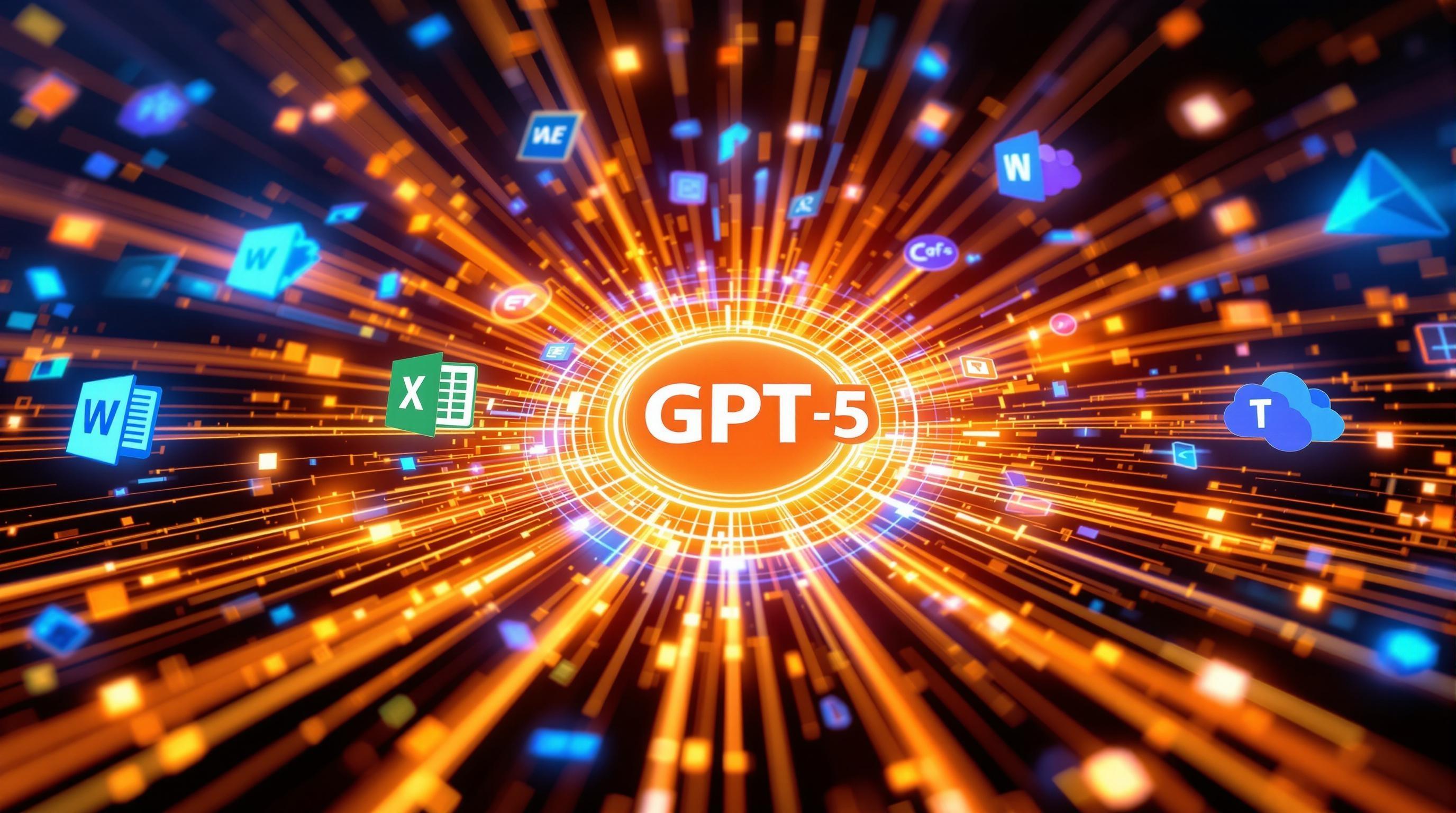Google DeepMind's Gemini Ultra: Redefining AI Benchmarks
Google DeepMind’s Gemini Ultra has emerged as a groundbreaking achievement, reportedly attaining human-level performance on a particularly challenging benchmark. This milestone signifies a monumental leap in the field of artificial intelligence, pushing the boundaries of what AI can accomplish. Achieving human-level performance, especially on a complex benchm
ark like the MMLU (Massive Multitask Language Understanding), suggests that AI systems are beginning to exhibit a deeper understanding and reasoning capability. This has significant implications across various sectors and raises profound questions about the future of AI. In the sections that follow, we'll delve into the specifics of the MMLU benchmark, explore what is known about Gemini Ultra's architecture (details are still emerging), and discuss the broader ramifications of this technological advancement for the future of AI as a whole. Stay tuned to AI News for the latest updates.

Decoding the MMLU Benchmark: A Comprehensive Examination
One of the key metrics used to assess the capabilities of advanced AI models like Google Gemini is the MMLU, which stands for Massive Multitask Language Understanding. The MMLU benchmark is designed to evaluate an AI model's knowledge and reasoning abilities across a wide range of subjects, mimicking the breadth of understanding a human possesses. Its purpose is to rigorously test a model's ability to not only memorize information but also to apply it in diverse contexts.
The MMLU encompasses a diverse array of question types spanning various subject areas, from the humanities (history, philosophy, law) and social sciences (economics, psychology) to the natural sciences (physics, chemistry, biology) and mathematics. This breadth ensures that a model cannot simply excel in one area but must demonstrate a general understanding across many disciplines. The questions often require complex reasoning, nuanced understanding, and the ability to connect disparate pieces of information.
The MMLU is considered a challenging benchmark because it demands more than just rote memorization. It requires the AI to demonstrate genuine understanding and reasoning, similar to how a human would approach these questions. Achieving human-level performance on the MMLU is a significant milestone, indicating that the AI has attained a certain level of cognitive ability.
Historically, AI models have struggled with the MMLU. Early language models often exhibited limitations in their ability to generalize knowledge and apply it effectively across different domains. They might perform well on specific subsets of the benchmark but falter when faced with questions requiring broader understanding. However, recent advancements in AI, particularly with models like Google Gemini, have led to significant improvements in MMLU scores, approaching and even surpassing human-level performance in certain cases.
So, what does MMLU stand for in AI? It stands for Massive Multitask Language Understanding, a benchmark designed to test a model's knowledge and reasoning across many different subjects.
A "good" MMLU score is relative and constantly evolving as AI technology advances. However, a score above 70% is generally considered very good, indicating a strong understanding across various domains. Human-level performance is around 90%, making it a challenging target for AI models. The importance of MMLU lies in its ability to push the boundaries of AI capabilities. It challenges researchers to develop models that can truly understand and reason, rather than simply memorizing and regurgitating information. This drives innovation and leads to more capable and versatile AI systems that can be applied to a wide range of real-world problems, as reported in AI News.

Inside Gemini Ultra's Architecture and Performance Metrics
Gemini Ultra's architecture and performance have generated significant buzz, particularly its reported 'human-level' score. It's important to clarify that this designation, while impressive, doesn't imply consciousness or sentience. Instead, it signifies a level of proficiency in certain tasks that rivals that of human experts. For instance, its performance on the Massive Multitask Language Understanding (MMLU) benchmark showcases its ability to reason and solve complex problems across a range of subjects.
How does Gemini Ultra stack up against other leading Large Language Models (LLMs)? Benchmarks suggest it surpasses models like GPT-4 and PaLM 2 in specific areas, demonstrating advancements in natural language understanding and generation. Several factors likely contribute to this success. Scale is undoubtedly a key element; Gemini Ultra benefits from an enormous number of parameters and a vast training dataset.
The model's architecture also plays a crucial role. While specifics are still emerging, speculation points towards a mixture of experts approach, allowing the model to specialize in different domains and tasks. Further refinement likely stems from advanced training techniques such as Reinforcement Learning from Human Feedback (RLHF), where human feedback guides the model towards more desirable and aligned outputs. Google plans to publish detailed information about Gemini Ultra's architecture and training methodologies. Until then, it's essential to remember that these performance claims require rigorous peer review and validation to ensure complete transparency and accuracy, as covered in AI News.
Transformative Applications: How Gemini Ultra Could Revolutionize Industries
The arrival of Google Gemini Ultra heralds a new era of transformative applications across diverse sectors. Let's delve into how this powerful AI model could revolutionize industries, answering the question: What problems does Gemini Ultra solve?
One of the most immediate impacts will be felt in the realm of AI assistants. Imagine AI companions that are not only more helpful but also deeply context-aware and capable of handling complex tasks with ease. This increased sophistication will lead to more natural and productive interactions, making AI assistants indispensable tools for everyday life.
In the sphere of AI in education, Gemini Ultra holds the potential to personalize learning experiences to an unprecedented degree. By analyzing a student's performance and identifying knowledge gaps, the AI can tailor educational content and provide targeted support. This could lead to more effective learning outcomes and a more engaging educational journey for students of all ages.
AI in research stands to gain significantly from Gemini Ultra's advanced capabilities. The AI can accelerate scientific discovery by efficiently analyzing vast datasets, identifying patterns, and generating novel hypotheses. This could lead to breakthroughs in various fields, from medicine to materials science.
In healthcare, Gemini Ultra could assist in medical diagnosis by analyzing medical images and patient data to identify potential health issues. It could also contribute to creating personalized treatment plans. Disclaimer: AI's role in healthcare should always be overseen by qualified medical professionals; Gemini Ultra is a tool to aid, not replace, human expertise.
Beyond these specific areas, Gemini Ultra promises to be a powerful problem-solving tool across industries. From optimizing supply chains and predicting market trends to enhancing AI in customer service with more human-like interactions, the possibilities are vast. Its ability to process and understand complex information could unlock new efficiencies and innovations across the board. You can find many such tools listed on our top-100 AI tools page.

Navigating the Ethical Landscape: Challenges and Considerations for Gemini Ultra
As Google DeepMind's Gemini Ultra pushes the boundaries of AI capabilities, navigating the ethical landscape becomes paramount. One of the most pressing concerns is AI bias. AI models like Gemini Ultra are trained on vast datasets, and if these datasets reflect existing societal biases, the AI will inevitably perpetuate and even amplify them. Addressing these biases requires careful data curation, bias detection techniques, and ongoing efforts to ensure fairness in AI outputs.
Another critical aspect is AI transparency, often referred to as explainability. Understanding how an AI arrives at a particular decision is crucial, especially in high-stakes applications. If we don't know how these models work, we risk blindly trusting AI outputs which are harmful. The need for responsible AI development demands that AI systems are not black boxes, but rather, provide insights into their reasoning processes. This is a hard problem, but one which DeepMind is tackling, as well as other AI tool creators found on our top-100 list.
Beyond bias and transparency, the potential societal impact of advanced AI like Gemini Ultra raises ethical concerns. Job displacement due to increased automation is a significant worry, necessitating proactive measures to reskill and upskill the workforce. The potential misuse of AI for malicious purposes, such as generating deepfakes or spreading disinformation, also requires attention. Ongoing monitoring and evaluation of AI systems are essential to detect and mitigate unintended consequences and ensure alignment with human values.
DeepMind is aware of these challenges and working towards responsible AI development through various initiatives. These include research into AI safety, the development of ethical guidelines, and collaboration with stakeholders to address the societal implications of AI. Ultimately, ensuring that AI benefits humanity requires a multi-faceted approach involving researchers, policymakers, and the public. By prioritizing ethical considerations throughout the AI lifecycle, we can harness the transformative power of Gemini Ultra while mitigating its potential risks. You can stay up to date on this and related topics by reading the latest AI News on our site.
Beyond Benchmarks: A Holistic View of AI Capabilities
While benchmarks like the MMLU provide a snapshot of AI performance in specific areas, relying solely on them offers an incomplete picture of true AI capabilities. The MMLU, for instance, primarily tests knowledge and reasoning in academic subjects, which, while important, doesn't fully capture the nuances of human intelligence. A truly intelligent AI should possess qualities beyond test-taking prowess.
Factors such as creativity, robustness, and ethical considerations are equally critical. Can an AI system generate novel ideas or solutions? How well does it perform in unpredictable, real-world scenarios? And most importantly, does it adhere to ethical principles and avoid bias? These aspects are often difficult to quantify with traditional benchmarks.
Ongoing research and development are crucial to address these limitations and enhance AI capabilities. We need to explore new evaluation methods that assess creativity, adaptability, and ethical reasoning. The AI News section is a great place to stay on top of recent advancements in these research areas.
Furthermore, human oversight and collaboration are essential. AI should be viewed as a tool to augment human capabilities, not replace them. By combining the strengths of AI with human judgment and expertise, we can achieve more effective and responsible outcomes. Ultimately, artificial intelligence is a powerful instrument, and like any tool, its value lies in how we choose to use it. For example, tools such as ChatGPT and Google Gemini are powerful but require proper oversight.

The Road Ahead: Gemini Ultra and the Future of Artificial Intelligence
Gemini Ultra stands as a remarkable achievement, signaling a significant leap towards human-level AI and redefining the trajectory of artificial intelligence. Its capabilities open doors to unprecedented advancements across various sectors, yet also bring forth crucial considerations about the future. As we continue to develop increasingly sophisticated AI models, it's vital to reiterate both the immense potential benefits and the inherent challenges. Models like Google Gemini demonstrate the incredible progress, detailed regularly in AI News. Harnessing the power of AI for good necessitates a collaborative approach. Researchers, policymakers, and the public must actively participate in shaping the development and deployment of these technologies. Open discussions, ethical frameworks, and proactive regulations are essential to navigate the complexities and ensure responsible innovation. The rise of AI tools has impacts on society. To truly capitalize on the transformative potential of AI, we must champion responsible innovation, prioritize ethical considerations, and steadfastly focus on creating a positive and equitable impact on society. This includes continued vigilance of advancements in AI News and tools. Gemini Ultra's emergence underscores the importance of these collective efforts as it reshapes the landscape of both AI and AI tools.
Keywords: Gemini Ultra, MMLU benchmark, Google DeepMind, human-level performance, AI model, large language model, LLM, artificial intelligence, AI reasoning, AI problem-solving, general AI, AI ethics, mixture of experts, Reinforcement Learning from Human Feedback (RLHF)
Hashtags: #GeminiUltra #DeepMind #AI #MMLU #ArtificialIntelligence
For more AI insights and tool reviews, visit our website https://best-ai-tools.org, and follow us on our social media channels!
Website: https://best-ai-tools.org
X (Twitter): https://x.com/bitautor36935
Instagram: https://www.instagram.com/bestaitoolsorg
Telegram: https://t.me/BestAIToolsCommunity
Medium: https://medium.com/@bitautor.de
Spotify: https://creators.spotify.com/pod/profile/bestaitools
Facebook: https://www.facebook.com/profile.php?id=61577063078524
YouTube: https://www.youtube.com/@BitAutor



